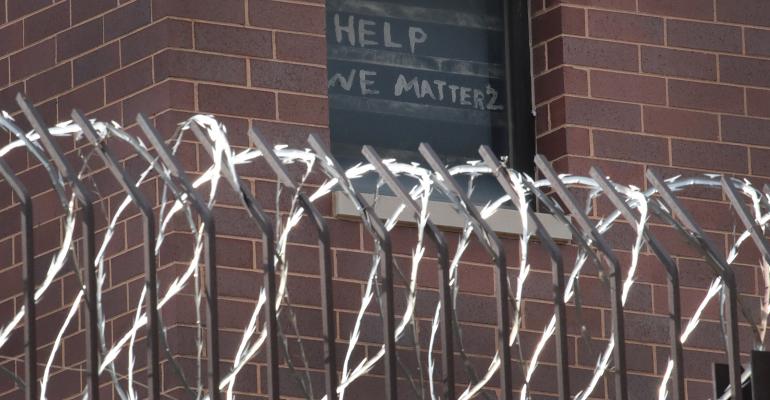Thomas Buck, a former top-producing Merrill Lynch broker who was imprisoned for securities fraud, is seeking an early release from his 40-month sentence at a federal correctional facility in Terre Haute, Ind., to avoid contracting COVID-19.
According to court documents, there is one prisoner at the facility who was hospitalized for displaying COVID-19 symptoms and was placed in solitary confinement in late April. Buck, 66, fears the prison is ill-equipped and understaffed to handle a coronavirus outbreak.
READ THE MOTION
Buck submitted his motion for compassionate release or placement in home confinement Tuesday with the U.S. District Court for the Southern District of Indiana. His attorney, Patrick Shoulders of the law firm Ziemer, Stayman, Weitzel & Shoulders, cited that Buck’s age and chronic history of asthma and repeated respiratory tract infections leaves him vulnerable to COVID-19.
Buck is scheduled to be released on January 20, 2022, but he is requesting to serve the remainder of his sentence in home confinement or performing community service.
His attorneys submitted the same petition 30 days earlier to the Federal Bureau of Prisons but have yet to receive a response. Shoulders stated it may be due to the bureau's policy that priority be given to elderly inmates who have served at least 50% of their sentence to qualify for a reduction. Buck will have served 50% of his sentence in July, according to his motion.
Buck was a broker with Merrill Lynch for 33 years and amassed $1.3 billion in assets under management before being fired in 2015 following customer allegations against him. According to Buck’s BrokerCheck profile, he misreported his commissions to 50 clients, excessively traded within customer accounts and failed to inform certain clients of their fee-based options. He received $2.5 million in exorbitant commissions and fees.
He went on to RBC Wealth Management for a short stint before FINRA barred him from the industry in 2015. Buck also faced securities fraud charges brought on by FINRA and the SEC. He settled with the SEC to pay over $5 million in disgorgement, fines and fees.





